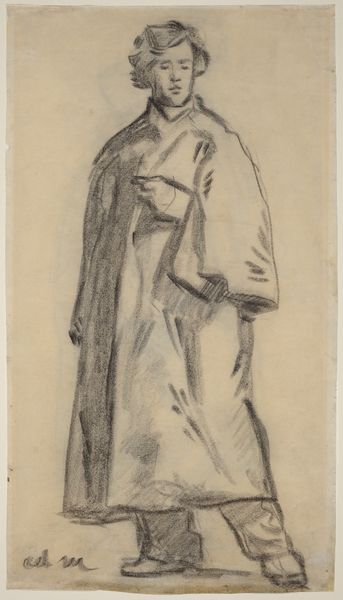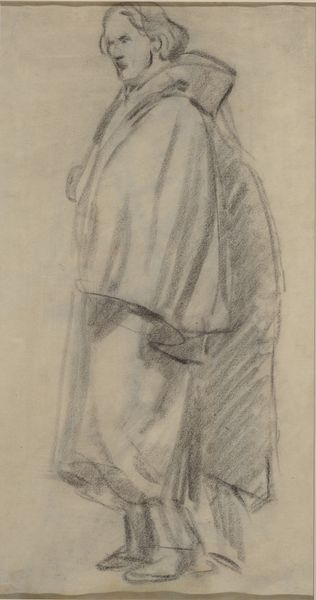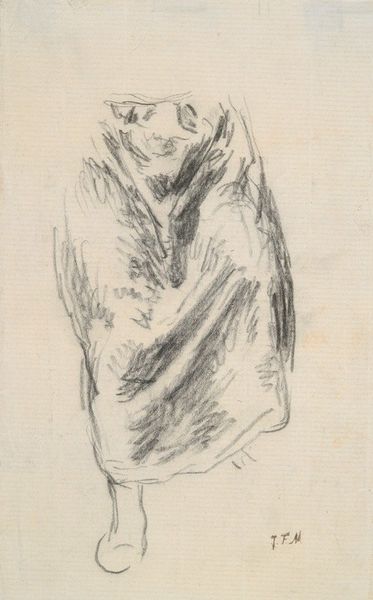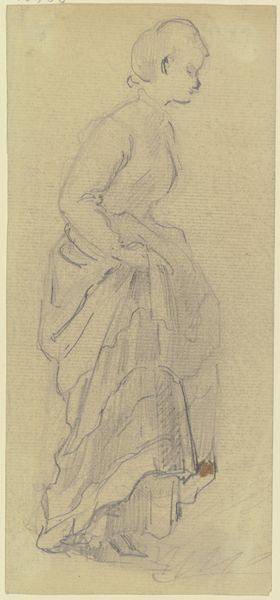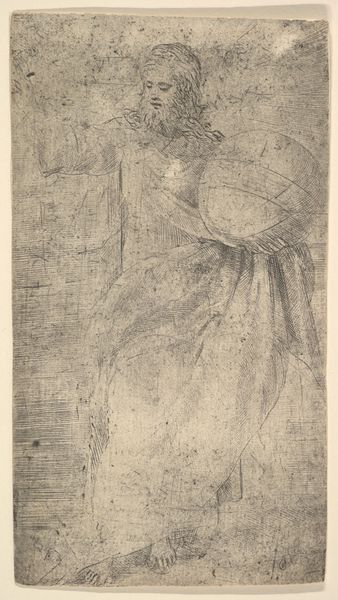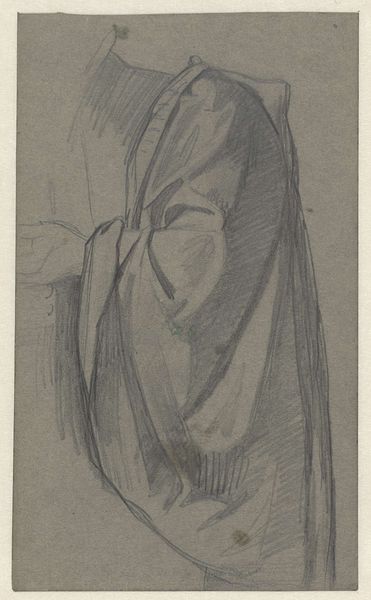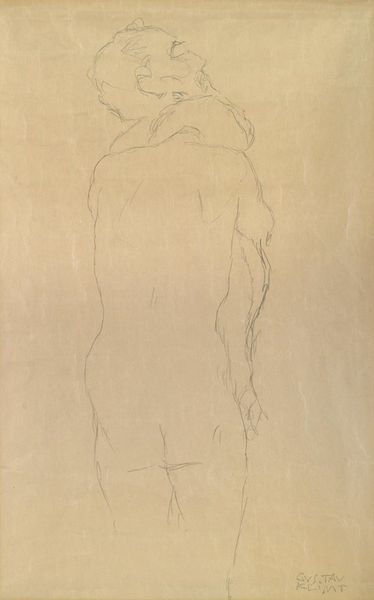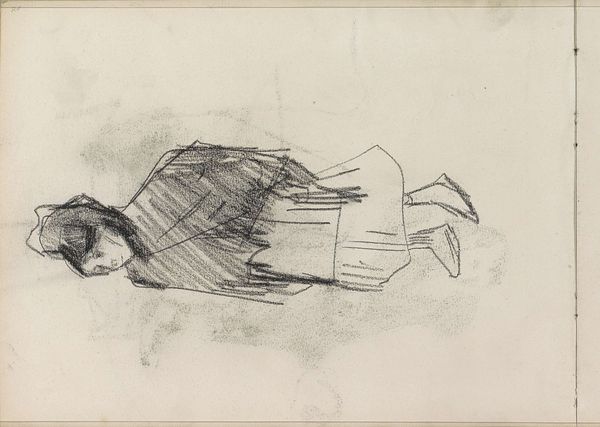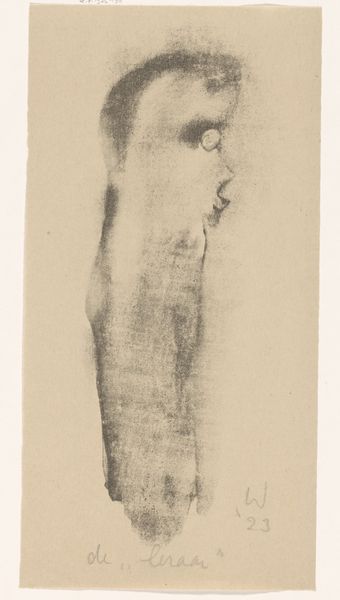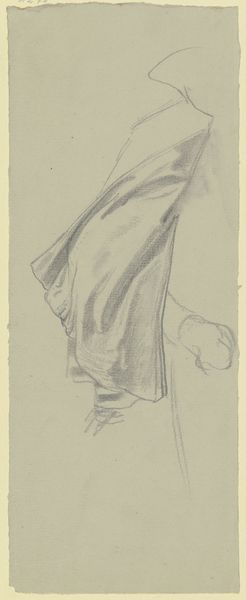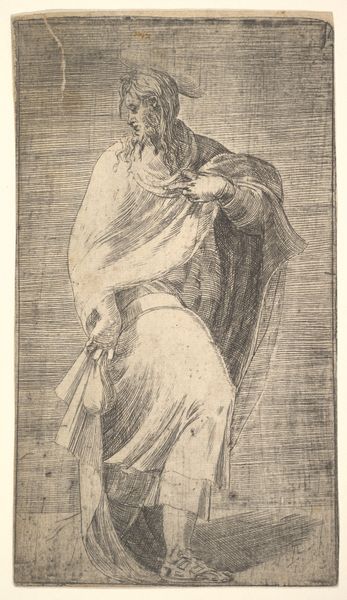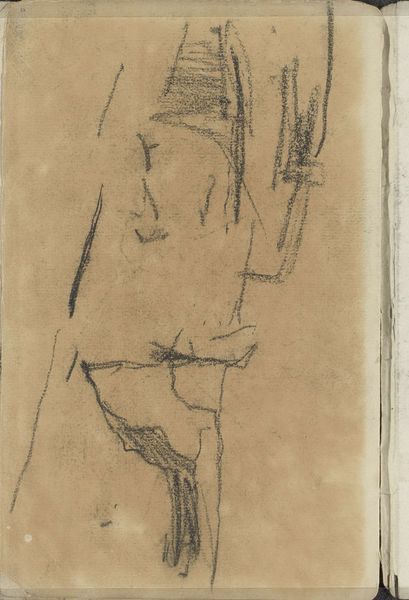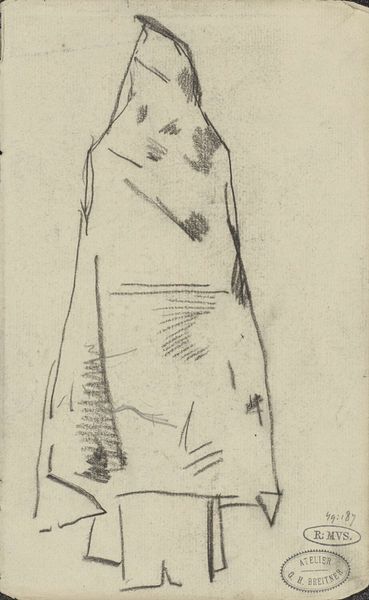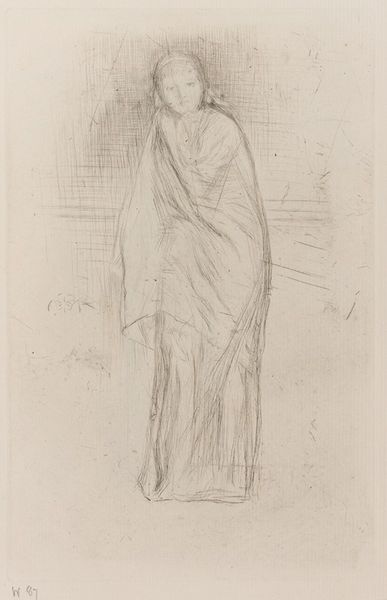
drawing, print, pencil
#
portrait
#
pencil drawn
#
drawing
# print
#
pencil sketch
#
figuration
#
pencil drawing
#
pencil
#
nude
#
realism
Copyright: National Gallery of Art: CC0 1.0
Editor: So, this is "Venus," a 1962 pencil drawing and print by James McGarrell. There's something so delicate and ephemeral about the figure, like she might just dissolve into the background. What do you see in this piece, especially given it's a print of a pencil drawing? Curator: I see a commentary on the very act of reproduction and the commodification of the female form. By choosing a humble medium like pencil, then further reproducing it through printmaking, McGarrell points to the democratization of art, but also hints at how easily an image can be circulated and consumed. Consider the labor involved – the repetitive, almost mechanical nature of printmaking versus the individual, unique mark-making of the original drawing. What does that juxtaposition tell us? Editor: That’s a good point. I hadn’t considered the contrast between the original and the reproduction in terms of labor. Does the choice of "Venus," traditionally associated with high art and idealized beauty, play into that tension as well? Curator: Absolutely. He's taking this iconic subject, laden with historical and art historical baggage, and rendering it through these accessible, reproducible materials. The use of pencil, traditionally a preparatory tool, makes us think about the artistic process and labor behind the idealized image. The figure’s hazy quality – achieved through the material itself and printing processes– deconstructs the flawless "Venus" and presents a Venus of the people. Who is Venus for and how does labor change her? Editor: It’s fascinating how the materials and the mode of production completely reshape the meaning of such a classical subject. Curator: Indeed. McGarrell is not just depicting Venus; he’s questioning the mechanisms of image-making and distribution, reflecting on art's societal role and its relationship to material culture. I think he also urges us to think of who exactly owns that image of beauty, of Venus, once she becomes democratized through these methods. Editor: I'll definitely look at prints and drawings differently now! Curator: Hopefully. I hope it gives you some appreciation of the art historical knowledge and, even, material knowledge involved in artistic consumption and production.
Comments
No comments
Be the first to comment and join the conversation on the ultimate creative platform.
